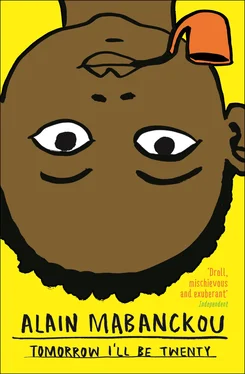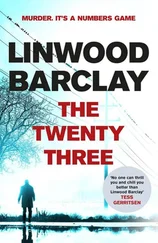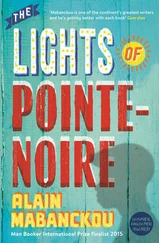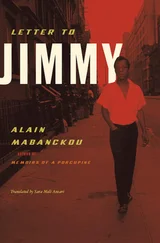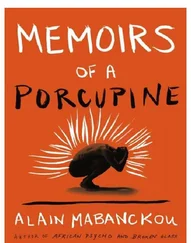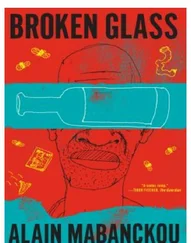My uncle said in a quiet aside to Maman Pauline, ‘I don’t like this man, he’s too short, it doesn’t feel right.’
Maman Pauline replied, ‘The President of the Republic is short, but he defeated an army of wicked men, single-handedly! And people love him, including you, you belong to his party.’
They couldn’t get into much of an argument in front of the man with the briefcase, particularly as he had a demi-john of palm wine and a white cockerel with him. The custom of our people is, if you want a woman, you have to give presents to her big brother. After that, even if you don’t go to the Mairie with the woman to sign papers, it doesn’t matter. Our ancestors are stronger than any papers, you can’t tear the ancestors up when you fall out of love and stand round fighting in the street like deadly enemies.
Uncle René accepted the demi-john of palm wine and the white cockerel. He asked the man with the briefcase why he wanted to take a second wife, when he already had one, who he’d had lots of children with. Maman Pauline flared up at this and said she was leaving my uncle’s house and not coming back. The man with the briefcase stopped her, he spoke calmly and told my uncle again that he loved my mother, he loved me too, that Maman Pauline was a good woman and he would treat her exactly equal with his first wife. He would split his salary in two: some for his first wife and some for Maman Pauline. His first wife knew all about it. He raised his right hand and swore on the name of his father and mother, both deceased.
At this my uncle said, ‘Brother-in-law, let us drink! All this discussion has parched our throats!’
Before drinking the palm wine they poured a little of it on the ground so our ancestors could have a drop too, otherwise there’d be hell to pay because you mustn’t do anything behind your protectors’ back. And they spent the afternoon discussing Karl Marx, Engels, Lenin and the immortal Marien Ngouabi and drinking palm wine.
When the man with the briefcase was about to leave, my uncle went round back of the house with him. ‘I don’t want my little sister going to live in the same house as your first wife. If that happens, I will never set foot there.’
The man with the briefcase found us a house on the Avenue of Independence, not far from the house of his first wife. He bought the house for us. So it belongs to us, he always said he’d bought it with me in mind. That’s why, if you read what’s written on the papers for our house, you’ll see my name.
As soon as I see Papa Roger coming, I’m like a different boy. I want to feel his arms around me, stay with him and hear him speak to me, feel his hands on my head. Sometimes I go and wait for him at the bus stop for Vicky’s Photo Studio. When I see a little man in a brown suit getting off the bus, walking very quickly, with a briefcase in his left hand, looking straight ahead, I run towards him, like the world 100 metres champion. He lets me carry his briefcase, I take it in my left hand and I lift my chin up, walking like a grown up. I want everyone who sees us to know he’s my real father. We stop at a bar, he buys a bottle of red wine, beer and lemonade. And we continue happily on our way home. I put his briefcase in the bedroom while he takes off his shoes and suit and changes his clothes, then comes and sits down in the living room. He tells my mother a few funny stories before we sit down to eat. He tells us what’s happened at the Victory Palace Hotel. He tells us lots of Whites arrived this morning. One of them is a Monsieur Montoir, who’s very nice to him. He talked a lot with this Monsieur Montoir, who’s come from Paris, with his wife and their only child, Zachary. And little Zachary talks like a big boy, even though he’s only my age. He can see I’m getting jealous of Zachary, so he tries to make me feel better. ‘Michel, you talk like a big boy too. I’m sure if you meet Zachary you’ll be great friends.’
While he’s talking to us, I watch his face carefully, his black eyes shining with the light from the storm lamp, and I say to myself, he’s got a lot of white globules, he’ll go straight to Paradise, somewhere close to God. Papa Roger’s a handsome man, perhaps the most handsome of all the papas in our town — and when I’m big I want to be handsome like him and take off my shoes and my suit and change my clothes and come and sit down in the living room and tell Caroline some funny stories before we sit down at the table with our two children.
I look at Papa Roger again, and I think, ‘Why does he love my mother and me? He must work so hard, for our house and Maman Martine’s. I say Maman Martine because I don’t like saying ‘stepmother’, like they do round here when they talk about your father’s other wife. A stepmother is a kind of witch you get in stories of the bush and the forest. A stepmother is forever cursing the child of the other woman, and her husband. Maman Martine’s not a stepmother. She’s my mother too.
Papa Roger always gets up at five in the morning to go and catch the bus at the Vicky’s Photo Studio stop. The bus takes him to the town centre and drops him outside the Hotel Victory Palace, the big white building behind Printania, the shop where white people buy their apples. That’s why when my father brings me home a nice green apple I eat it really slowly, thinking about all those people in our quartier who never get to eat apples. Before I take a bite, I hold it up to my nostrils. I think how far it’s travelled, and how, when I eat it, I’m transported far from our little country, to other, bigger countries, where they speak languages I don’t understand yet, but will do one day soon. And then I feel suddenly calm, I feel as though I’m going to live to over a hundred, like my maternal grandfather, Grégoire Moukila, that there will be an end to all the problems in this little country of ours, because the smaller a country, the bigger its problems and everyday life’s impossible. I don’t want all the problems of the big countries coming here and making life even more impossible than it is now because we’re already too small. Sometimes when Papa Roger brings me some apples, I suddenly find myself in the middle of a great wood, in Europe, full of apple trees, and I can feel snow falling and see little snowmen grinning at me because they know my name’s Michel. I lie down under one of these apple trees, on the banks of a river, it’s not cold, though, not like in a European country, and I dream that I’m growing bigger.
The Victory Palace Hotel belongs to some French people. Papa Roger writes down the names of the people who arrive, and the people who leave. He’s been the receptionist there for over twenty-five years; he knows his job, otherwise he wouldn’t still be there. He has a telephone in front of him, the keys of all the rooms of the hotel behind him. You can’t get into a room in this hotel unless Papa Roger gives you the key. To work at the reception desk you have to be able to speak French because most people who come for their holidays are French. And not only that: you have to be able to make the clients laugh. Papa Roger always thinks of something to make the Whites laugh because, he says, it’s so cold over there in Europe, people don’t laugh much. Their face muscles are frozen. And if they’ve had a good laugh they give my father some money the day they leave. The more generous ones, like Monsieur Montoir, give things like the tape recorder and a cassette of the singer with the moustache.
Before he tells his jokes to the Whites, my father tries them out at home. He tells us to sit down and listen to him. He promises we’ll be doubled-up laughing because the jokes in question are extremely funny, he himself finds them very funny. He takes out a piece of paper from his pocket and reads out loud.
Читать дальше
